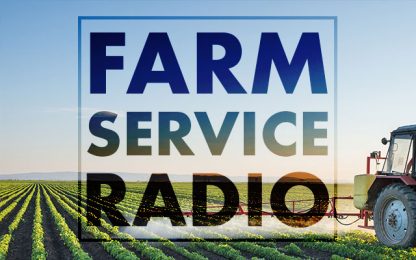MFU outlines policy priorities for 2024 session

Minnesota Farmers Union (MFU) anticipates another busy legislative session in 2024.
The session convenes Feb. 12 in what is typically considered a bonding year, with the two-year budget set last year.
MFU members have several priorities they will work on this session, including the MinnesotaCare Public Option, Right to Repair, competitive markets and climate resilience.
“We want to finish the job on projects started, but left uncomplete in 2023,” said MFU President Gary Wertish. “We need to pass Right to Repair legislation for farm equipment. When farmers pay thousands of dollars for farm equipment, they should be able to repair the equipment themselves or go to their favorite local repair shop to get it fixed. As implement dealerships have consolidated, they are further away from farmers and busier, which adds headaches when trying to get a timely repair done during planting or harvesting season. It’s just like when I get my farm truck serviced. I can take it to the dealership where I bought it or go to the independent shop in town. Farmers should be able to do the same thing with their equipment. Additionally, for some farmers, fixing equipment could be a way to diversify their income. Right to Repair is a win-win for rural communities and rural economic development.
“Further, we all know that health care costs are unsustainable,” Wertish said. “The MinnesotaCare public option, which allows farmers and other small business owners to buy into MinnesotaCare, would provide an option to make insurance more affordable and accessible. This is an important first step in an ongoing process to expand access to health care and improve outcomes for Minnesotans.”
Here’s a closer look at MFU’s key priorities this session:
- MinnesotaCare Public Option: Last session, lawmakers authorized a public option to allow farmers and small business owners to buy into the comprehensive coverage provided to lower income Minnesotans as part of our state’s Basic Health Plan. However, action is needed this session to ensure it can be implemented and made available. MFU is working with lawmakers to ensure the MinnesotaCare Public Option is public, comprehensive, affordable and stable over the long term.
- Right to Repair: Last session, Minnesota lawmakers passed the most comprehensive Right to Repair law in the country. Unfortunately, the legislature exempted farm equipment. This session, MFU is working to pass an agriculture-specific Right to Repair law that creates a competitive market for repair and guarantees that farmers and independent repair technicians have access to the parts, tools and diagnostic equipment needed to fix farm equipment.
- Stable budget for a resilient food system: Through COVID-19, 2021’s historic drought, zoonotic disease outbreaks and other challenges, the Minnesota Department of Agriculture (MDA) was quick to respond. The program that gave them this flexibility was the Agricultural Growth, Research and Innovation (AGRI) program, which was created in fiscal year 2013. AGRI faces a funding cliff in 2025 due to the program’s expiration. MFU will work to fund AGRI and maintain funding for MDA, the Agricultural Utilization Research Institute (AURI) and the Board of Animal Health (BAH) so that they can continue partnering with farmers to build a farm and food system that is more resilient, distributed and fair.
- Competitive markets: Since 1952, the farmers’ share of every dollar spent on food has decreased from 50 percent to less than 15 percent today. More broadly, our economy is 50 percent more concentrated than it was in 2005, allowing big, multinational companies to increase prices with impunity, contributing to inflation and making it harder for small businesses, workers, farmers and consumers. To create a more level playing field, MFU is working to strengthen Minnesota’s antitrust laws, adopt an ‘abuse of dominance’ standard that would allow the Attorney General’s office to act against companies who unfairly abuse their market power and prohibit price discrimination that undermines local retailers.
- Climate resilience: Family farmers are on the front lines of the climate crisis, experiencing extreme weather, unpredictable growing seasons and increased risk of plant and animal diseases. MFU will work to expand voluntary programs that incentivize on-the-ground practices, including MDA’s soil health grant program and the Minnesota Agricultural Water Quality Certification Program (MAWQCP), expand MDA’s green fertilizer production incentive with a priority for farmer ownership and promote farmer and worker ownership of renewable energy projects, including through cooperatives.
Find more of MFU’s legislative priorities at mfu.org.
The 2024 Minnesota legislative session must end by May 20.


